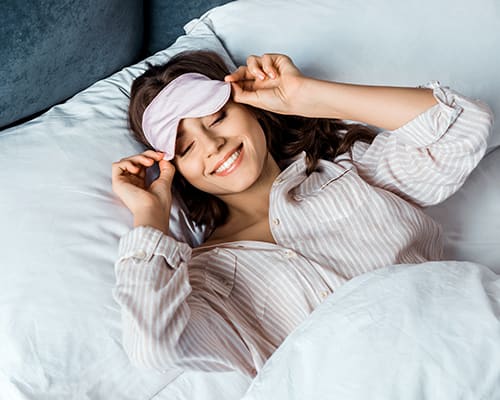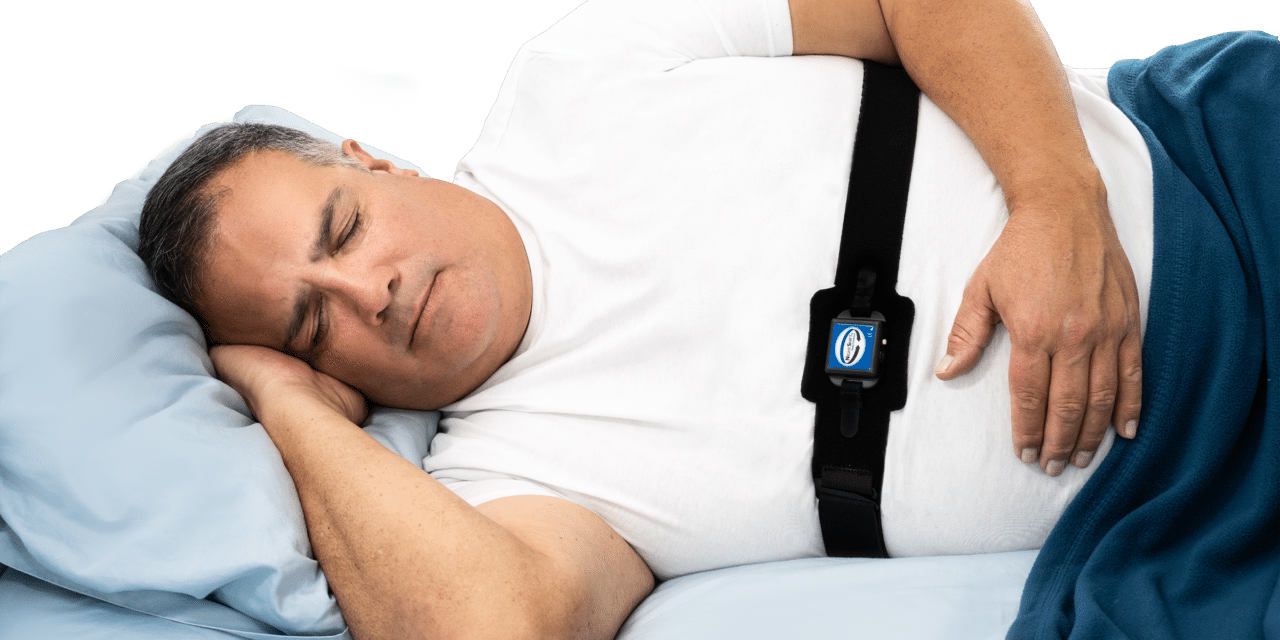Advanced Sleep Therapy - Achieve Deep, Restful Sleep
Advanced Sleep Therapy - Achieve Deep, Restful Sleep
Blog Article
Efficient Treatment Solutions for Handling Sleep Disorders and Enhancing Relaxing Sleep
In the realm of health care, the administration of sleep conditions and the quest for relaxed rest are pivotal components of overall wellness. As we navigate the complex landscape of rest problems and look for to enhance our rest experience, a deeper understanding of these therapy options may hold the secret to unlocking an extra refreshing and fulfilling corrective trip.
Cognitive Behavior Modification for Sleeplessness (CBT-I)
Cognitive Behavior Modification for Insomnia (CBT-I) is an organized, evidence-based treatment technique that concentrates on addressing the underlying factors adding to sleep disturbances. This sort of treatment intends to change actions and thoughts that worsen sleep problems, eventually advertising healthy and balanced rest patterns. CBT-I usually includes a number of vital parts, including cognitive treatment, sleep constraint, stimulation control, and rest health education.
Cognitive treatment assists individuals identify and change negative thought patterns and ideas about sleep that may be hindering their ability to fall or stay asleep. Sleep restriction entails limiting the quantity of time spent in bed to match the individual's actual sleep duration, therefore raising rest performance (insomnia solutions). Stimulus control methods assist establish a solid organization between the bed and sleep by encouraging individuals to go to bed only when drowsy and to avoid engaging in boosting activities in bed
Additionally, sleep hygiene education and learning focuses on developing healthy and balanced sleep habits, such as keeping a regular rest schedule, developing a relaxing going to bed regimen, and enhancing the rest atmosphere. By resolving these factors adequately, CBT-I provides a reliable non-pharmacological intervention for managing sleep problems and enhancing general sleep high quality.
Rest Hygiene Practices
Having actually developed the structure of cognitive restructuring and behavior alterations in resolving sleep problems through Cognitive Behavioral Therapy for Sleep Problems (CBT-I), the focus currently changes towards exploring crucial Rest Hygiene Practices for preserving optimal sleep quality and general health.
Sleep health practices include a range of habits and ecological elements that can significantly impact one's capability to drop off to sleep and stay asleep throughout the night. Regular sleep and wake times, developing a relaxing going to bed regimen, and optimizing the rest setting by maintaining it dark, quiet, and cool are vital components of great rest health. Limiting exposure to screens before going to bed, preventing stimulants like caffeine near to going to bed, and participating in routine physical task throughout the day can additionally advertise far better sleep top quality.
Additionally, practicing relaxation strategies such as deep breathing exercises or meditation prior to bed can aid calm the mind and prepare the body for sleep. By incorporating these sleep health techniques right into one's everyday routine, individuals can establish a healthy rest pattern that supports relaxed rest and general health.
Relaxation Strategies and Mindfulness
Executing leisure methods and mindfulness practices can play an essential duty in cultivating a feeling of tranquility and promoting quality sleep. In addition, assisted imagery can help carry people to a relaxed area in their minds, aiding in stress and anxiety decrease website link and improving rest quality.
Mindfulness techniques, such as reflection and yoga exercise, are additionally efficient in advertising leisure and enhancing sleep. Mindfulness encourages individuals to stay present in the minute, releasing stress over the past or future. By including these methods right into a going to bed routine, people can signify to their bodies that it is time to prepare and relax for sleep. On the whole, incorporating relaxation strategies and mindfulness techniques can considerably add to managing sleep conditions and improving overall sleep quality.

Medication Options for Rest Disorders
After checking out relaxation techniques and mindfulness practices as non-pharmacological interventions for improving sleep quality, it is vital to consider medication options for individuals with sleep problems. In cases where lifestyle changes and therapy do not supply enough relief, medicine can be a useful device in taking care of rest disruptions.
Commonly prescribed medications for sleep problems consist of benzodiazepines, non-benzodiazepine hypnotics, antidepressants, and melatonin receptor agonists. Benzodiazepines, such as diazepam, are sedatives that can aid generate sleep, yet they are typically advised for temporary usage due to the threat of reliance. Non-benzodiazepine hypnotics like zolpidem are additionally utilized to treat sleeplessness and have a reduced risk of reliance compared to benzodiazepines. Antidepressants, such as trazodone, can be valuable for people with co-occurring anxiety and rest disruptions. Melatonin receptor agonists, like ramelteon, target the body's natural sleep-wake cycle and can be handy for regulating sleep patterns.
It is essential for individuals to speak with a doctor to establish one of the most suitable drug choice based on their specific circadian rhythm and sleep rest problem and clinical background.
Light Treatment for Circadian Rhythm Law
Light treatment, likewise known as phototherapy, is a non-invasive treatment method utilized to control circadian rhythms and enhance sleep-wake cycles. This therapy includes exposure to intense light that mimics all-natural sunlight, which helps to reset the body's biological rhythm. By revealing people to details wavelengths of light, generally in the early morning or evening depending on the desired effect, light therapy can efficiently adjust the circadian rhythm to promote wakefulness throughout the day and improve restful sleep in the evening.
Research has revealed that light treatment can be specifically valuable for individuals with body clock conditions, such as delayed rest stage disorder or jet lag. It can additionally be useful for those experiencing seasonal depression (SAD), a kind of depression that typically happens during the cold weather when all-natural light direct exposure is lowered. Light therapy is usually well-tolerated and can be made use of along with various other treatment techniques for rest conditions to optimize end results and improve general sleep quality.
Conclusion
Finally, effective therapy solutions for handling sleep disorders and enhancing peaceful sleep consist of Cognitive Behavioral Therapy for Sleeping Disorders (CBT-I), sleep hygiene methods, leisure methods and mindfulness, medication alternatives, and light therapy for circadian rhythm policy. These approaches can aid people enhance their rest quality and general well-being. It is essential to seek advice from a health care service provider to identify one of the most ideal technique for addressing sleep issues.
As we navigate the intricate landscape of rest problems and seek to improve our rest experience, a much deeper understanding of these treatment solutions might hold the trick to unlocking a more rejuvenating and meeting restorative trip.
Rest constraint entails limiting the quantity of time spent in bed to match the person's actual internet rest duration, thus enhancing sleep performance. Consistent sleep and wake times, producing a relaxing going to bed routine, and enhancing the sleep atmosphere by maintaining it dark, silent, and cool are vital components of great rest hygiene. Light therapy is usually well-tolerated and can be used in conjunction with other treatment methods for rest conditions to optimize results and improve overall sleep quality.

Report this page